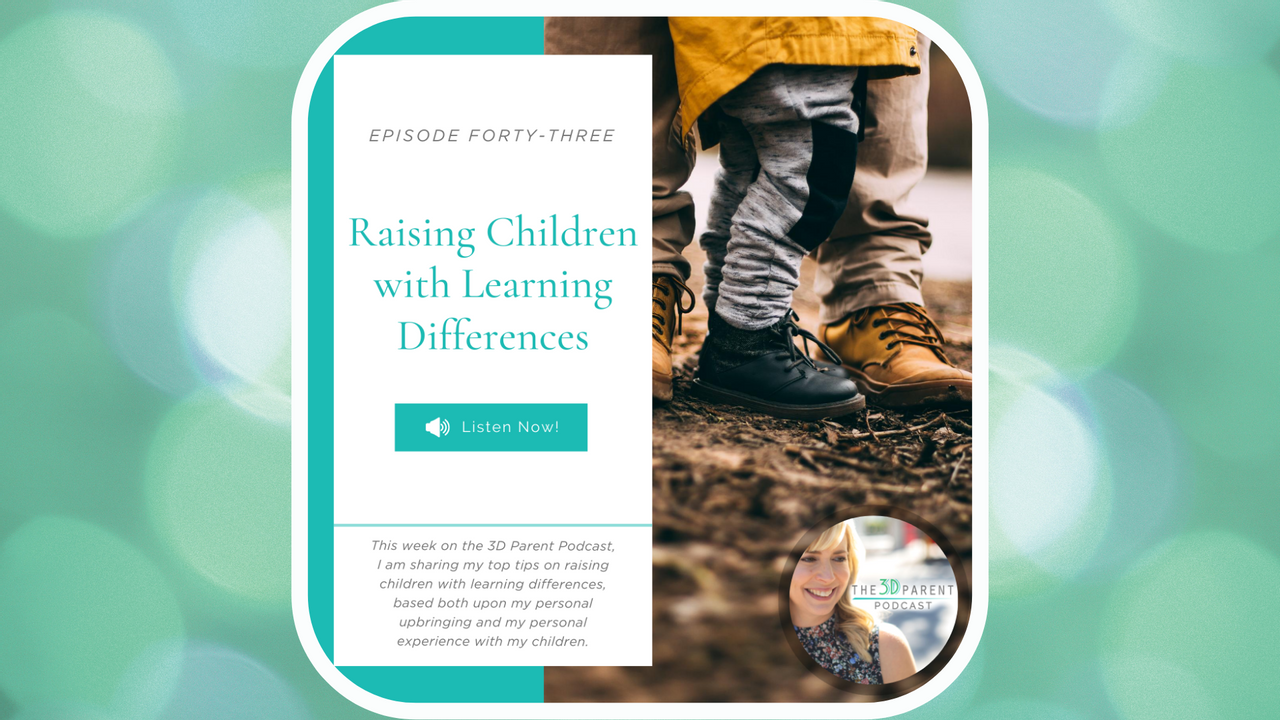Raising Children With Learning Differennces
May 18, 2021
“Soon you'll find that raising a child with learning differences is a gift.”
This week on the 3D Parent Podcast, I am sharing my top tips on raising children with learning differences, based both upon my personal upbringing and my personal experience with my children.
Some of the topics covered in this episode include:
- How to detect the signs of your child having learning differences.
- What proper steps and actions you should take as a parent when you determine your child has a learning difference.
- How to embrace your child having a learning difference and realizing it’s a true gift.
If you currently have a child with a learning difference or maybe you grew up yourself with one, it can be an overwhelming situation at first. In this episode, I’m going to share my top ten tips on parenting children with a learning difference, as well as my personal experiences with this topic.
Things You Will Learn

Quotes From Episode 43
“I would say because of having just a few accommodations, namely extended time, and in some cases kind of alternate ways in which to show my work and particularly the use of word processing and computers versus handwritten work were a huge help and moving forward.”
“The demands on them academically start to become increased. And so, therefore, the frustration, they can't keep up. Things are taking longer and they kind of go into the sense of overwhelm and shut down.”
“So do not fear the diagnosis, embrace it. It helps make sense. And if nothing turns up, great, you have an answer to that question. If something does turn up now, you have knowledge.”
“If your child has a diagnosis of anything having to do with the learning difference, educate yourself and your child and anyone who interacts with your child about not only the challenges but also the gifts that come with your child's learning difference.”
“You need to do the work as your child's parent and help others who interact with the child. Make a shift in your thinking to recognize what is inherently challenging to your child due to their difference and then provide appropriate support.”
“If the hiring of tutors or academic coaches for your children is of a financial concern for you, something that feels cost-prohibitive, there are services that provide that free of charge or on a low sliding scale.”
“Soon you'll find that raising a child with learning differences is a gift.”
Let's work together! I provide 1:1 support for parents motivated to make positive changing in their parenting and gain confidence and increase fulfillment in their role as parents. If this sounds like it might be what you've been looking for, book a free consultation today.
Stay connected with news and updates!
Join our mailing list to receive the latest news and updates from The 3D Parent.









